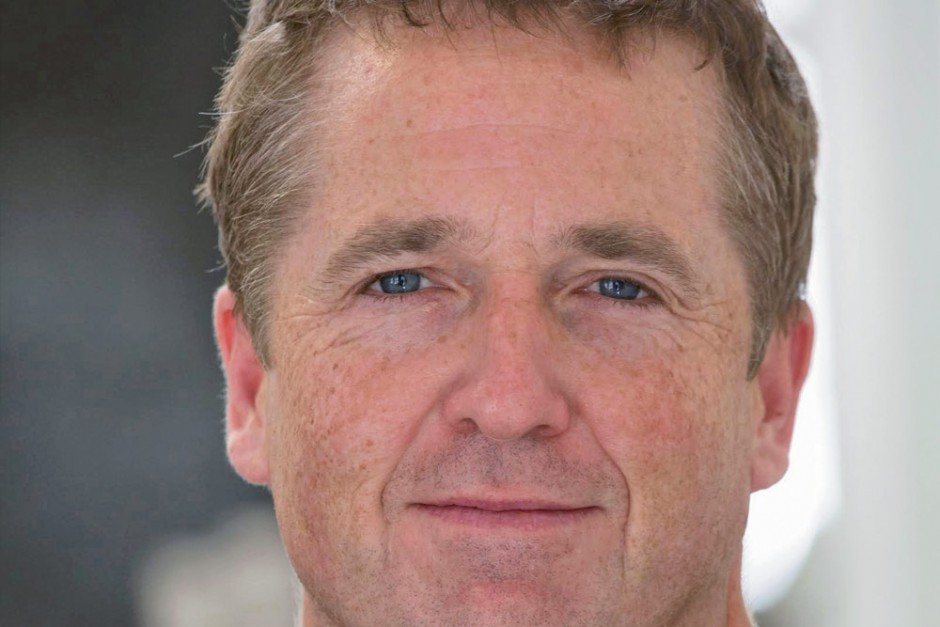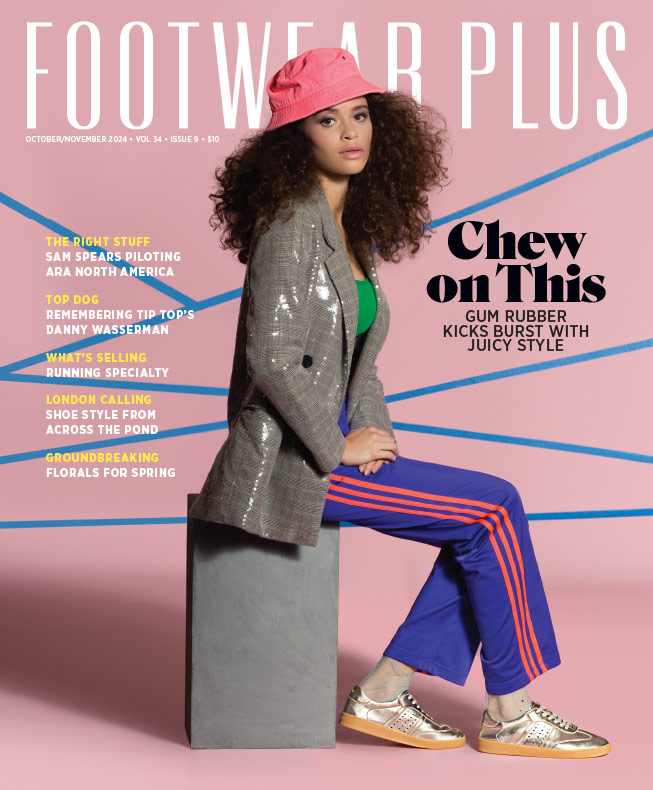
Skeptics said it couldn’t be done, but Bayard Winthrop showed them—and everyone else—that companies can produce well-made, affordable clothing right here in the U.S.A. This year his San Francisco-based online apparel company American Giant was named one of the World’s 50 Most Innovative Companies by Fast Company magazine, and that might be just the beginning. Winthrop and American Giant could do for wardrobe staples what chefs like Jessica Prentice and Alice Waters did for the eat local, eat organic movement: change American consumers’ thinking and their tastes. Already, American Giant’s hooded sweatshirts are being hailed by a legion of ardent fans as the best ever made. Devotees say they’re the kind of garment not seen in decades, the kind you can wear forever without wearing out.
Winthrop, who started his career in corporate finance before spending almost two decades running consumer products companies, says American Giant’s priorities are simple. First, make the basics right—every time. (Not long ago the firm rejected a whopping 1,600 sweatshirts coming off the assembly line for having imperfect stitching.) Second, sell direct to customers online, bypassing traditional distribution channels in order to put money and attention into what matters most to shoppers: quality, cost and that little label assuring them that their hoodie was homegrown. (American Giant uses cotton grown, finished and dyed in North Carolina and factories in California, not far from the company’s headquarters.)
Widespread interest in his approach to business recently prompted Winthrop to pen the book I F**king Love That Company: How a New Generation of Brand Builders Is Defining the Post-Amazon World, co-written with Randy Komisar of the California-based venture capital firm Kleiner Perkins Caufield & Byers. Here, he shares his views on the future of retail and his secret for making customers fall head-over-heels for your store or your brand.
How did the title of your book come about?
There’s a difference between a company that you like, and a company you f**king love. The “love” part is what we’re referring to in the book title. We believe that companies, and the values that they live by, that resonate with their customers will be the brands that succeed in the post-Amazon world.
The title suggests a passion for products and brands—something that has waned in consumers in recent years. Would you agree? If so, why do you think that’s happened?
I agree that some of the big, iconic brands that used to have a really strong message and value proposition have faltered over the years. The brands I grew up with like Levi’s and Champion that made great, affordable product and were distinctly tough and made in America have absolutely changed. We’re also competing in a world of infinite choice, so customers are less loyal and more able to try new brands that they are drawn to.
What are the best ways to ignite customers’ passion for a brand or store? Tell us how you’ve done this at American Giant.
It sounds basic, but I think the best way is to really listen to what the customer is asking for. I noticed that consumers were increasingly looking for quality and transparency. In the apparel business this was only being solved by boutique brands selling $300 jeans in Brooklyn. That left the mainstream consumer out. I wanted to address that mainstream consumer by making high-quality affordable clothing. At American Giant we don’t invest in distribution (by selling directly to our customers online) or massive marketing campaigns (no billboards in Times Square), so we can focus resources and attention on what matters to us and to our customers: High-quality product, American manufacturing and exceptional service.
Could a shoe store apply the same approach you’ve used at American Giant to succeed?
Absolutely. We’re in what we call the “post-Amazon” era, when consumers can find almost anything online and care less and less about the store and mall experience. Cutting out retail costs allows any producer of a consumer product to channel more money into things that matter to customers. Great product gets people talking, no matter what category we’re talking about.
What do you think consumers want in a shopping experience? Can they find it at the local mall?
Consumers are looking for a value proposition that resonates with them. That can look like Made in the U.S.A., or high quality product, or both, but as I mentioned, it’s less and less about all the bells and whistles of malls and stores. They might find it at the local mall, but just being available in the local mall is no longer a competitive advantage.
Service, quality and the human touch are all areas that a traditional retailer should be able to excel at, yet many retailers aren’t doing well in these aspects. Why do you think that’s happening?
Traditional retailers have built their business models on enormously complex and expensive distribution and massive marketing programs. Supporting those aspects of the business is consuming, and attention to service, quality and the human touch are expensive and are often sacrificed to support the other elements of the business cost structure. It happens over time, little by little—we call it death by a thousand cuts.
You’ve also stressed the importance of focusing on what you do well and not getting distracted. Why is this crucial to success? Do you think this sort of distraction has contributed to problems in the retail landscape in general?
It’s easy to get distracted. Particularly when you are managing massive real estate portfolios, huge marketing initiatives, etc. When you focus on those things it leads you to take attention and resources away from the product you’re selling. And I’d argue that is what your customer cares most about—particularly younger, emerging consumers. In the post-Amazon era, consumers can easily go somewhere else that’s providing that value proposition they’re excited about.
At American Giant we try to always remember why we’re here, and what our objective is: Make great, affordable product in the U.S.A. and treat our customers the way we’d want to be treated.
Style File: Bayard Winthrop
How would you describe your personal style?
Wrangler jeans, American Giant hoodie and T-shirt.
What’s your go-to shoe style?
Work boots.
What’s your motto?
Don’t get comfortable.




